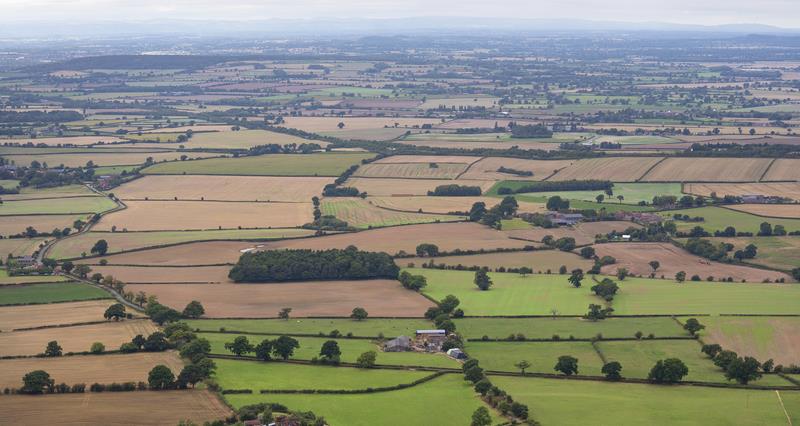Waste exemptions allow farmers to undertake certain low-risk waste management activities, adhering to technical conditions but without having to apply for an environmental permit.
Farmers have to register the use of each exemption (currently without charge) with the EA (Environment Agency).
What are the changes?
Following DefraŌĆÖs 2018 consultation on ŌĆ£proposals to tackle crime and poor performance in the waste sector and introduce a new fixed penalty for the waste duty of careŌĆØ, we have learned that the Environment Agency plans to bring in charges for waste exemptions in England by at some point in 2024.
A public consultation is due to take place by the end of the year, as part of a wider consultation on other planned Environment Agency charges.
Ahead of these charges, the Environment Agency has been writing to exemption holders to encourage them to review and deregister exemptions that they do not need.
The EA has recently published an update to its ŌĆśŌĆÖ digital service, which allows users to edit their existing registrations without the need to contact the NCCC (national customer contact centre). The new functionality includes the ability to:
- de-register existing waste exemptions
- update your email address
- update your mobile phone number
- update your contact name
The EA is trying to make it easier for farmers when deciding what exemptions they do and donŌĆÖt need. It allows them to self-serve, rather than ring up and put the request in writing.┬Ā
This work is part of wider reforms to waste exemptions which was announced as part of the DefraŌĆÖs consultation response. More information on these changes can be found at: Defra consults on waste crime and waste exemptions
What do we know so far?
The Environment Agency has not yet announced what the levels of these incoming charges will be. Following discussions with the Environment Agency, the NFU understands that there will be a small charge for the registration or renewal of waste exemptions for a period of three years.
There will also be a charge to pay for frontline compliance activity.
These charges will likely be based on the risk of the waste activity involved, and the associated cost of regulation. Therefore, higher risk activities that require more frequent compliance activity will be charged more, while lower risk activities that require less frequent compliance activity will be charged less.
As part of the wider exemption reforms, we expect to see increased visits by the Environment Agency, however these will be spread over the three year registration period.
The Environment Agency is still considering its approach to charges for waste exemptions on farms in advance of the consultation.
When are the changes happening?
The new EPRs (Environmental Permitting Regulations) are not expected to come into force before 2025.
Common on farm exemptions
Working with the Environment Agency, we have identified the following exemptions as ones which may be commonly held and routinely used by those who work in agriculture:
This list is not exhaustive and there may be others you need for your waste activities. Please see the Environment Agency website for further information and a full list of waste exemptions: .
The Environment Agency will contact exemption holders directly to inform them when the charges consultation has launched, and we will continue to liaise with the EA on charges prior to the consultation.
There are a number of exemptions that will be removed from the exemption list, as well as exemptions which have changes to their conditions. The transition period for the exemption changes last between 3 and 12 months depending on the exemption category.
Exemptions expected to be removed
Exemptions that may be subject to change
Please see the .
Exemptions you do not need to register for
Non Waste Framework Directive exemptions are existing, non-registerable exemptions. If you store your own waste temporarily, or operate a waste collection point, you may not need to register an exemption.
However, you must still comply with certain limits and conditions. The EA is not consulting on a charge for these, but it is important to be aware of the exemptions for waste activities you are automatically covered for.
- NWFD2 allows waste to be temporarily stored at the place of production (in a secure place for up to 12 months) before it is collected. As part of this, farmers can carry out some treatments to facilitate the collection (like cardboard baling for example). This needs to be the farmer's own waste, not waste imported from another farmer/business.
- NWFD3 allows temporary storage at a place controlled by the producer. For example, a farmer producing waste on one farm, and then storing that waste on another one of their farms. This one has a few more conditions associated with it. Again, you can treat the waste to facilitate the collection.
For more information, visit: .
Do I need to take action?
The upcoming changes affect everyone who operates waste exemption activities, and it is important that holders of waste exemptions make sure they can continue to operate without the need for a permit.
The changes involve correcting or clarifying waste codes and descriptions, restricting the amount of waste handled on sites with multiple exemptions registered, and removing some exemptions while others have changes made to their conditions.
Holders of waste exemptions will need to and check if they still need them. They will also need to make changes to ensure they can comply with the revised exemptions, apply for an appropriate permit, or stop their waste activity.
